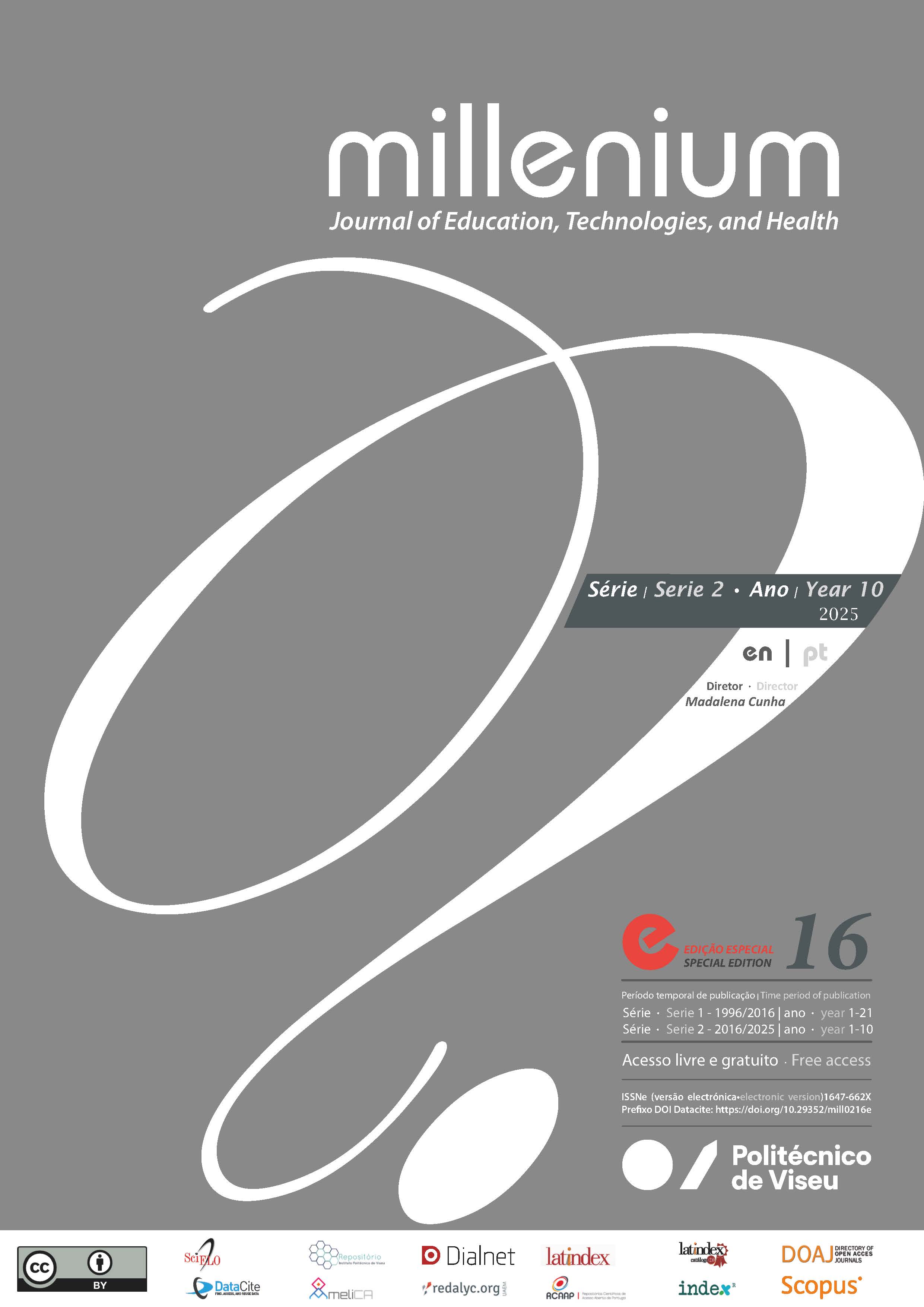Consumption patterns and television content preferences of portuguese higher education students
DOI:
https://doi.org/10.29352/mill0216e.40180Keywords:
FTA television; content; students; consumption; higher educationAbstract
Introduction: After emerging as a groundbreaking communication technology and experiencing periods of peak popularity, Portuguese free-to-air (FTA) television now operates in a competitive, multiplatform attention market. What are higher education students’ perceptions of FTA TV, and what types of content do they consume?
Objective: The main objective of this study was to identify open-signal television consumption trends among a group of Portuguese higher education students.
Methods: A case study design was adopted, using an online questionnaire for data collection. The sample consisted of 89 communication and arts students from the Polytechnic Institute of Viseu during the 2023/2024 academic year.
Results: Findings show that young people continue to watch FTA TV on television sets more than on mobile devices, underscoring the need for broadcasters to invest in flexibility and diversified programming. News and fictional content remain the students’ preferred genres, given their informational and entertainment value. Furthermore, the study highlights the importance of stimulating the domestic FTA market to offer a more competitive range of content.
Conclusion: This study provides insights into FTA television consumption trends, useful not only to the academic community but also to the broader media sector, which competes for audience attention in an increasingly competitive marketplace.
Downloads
References
Bryman, A. (2012). Social research methods (4ª ed.). Oxford University Press. https://ktpu.kpi.ua/wp-content/uploads/2014/02/social-research-methods-alan-bryman.pdf
Burnay, C. D., & Ribeiro, N. (2023). Anuário do setor de produção audiovisual em Portugal 2022. Universidade Católica Portuguesa.https://www.apitv.com/wp-content/uploads/2024/05/240506-ANUARIO-UCP-23-DIGITAL.pdf
Burnay, C. D., Lopes, P., Sousa, M. N. de, Félix, J., & Carvalho, A. L. (2021). Portugal: Diretiva europeia “serviços de comunicação audiovisual a pedido”: O princípio do fim da monocultura da telenovela? In M. I. Lopes (Coord.), Anuário Obitel 2021 - A ficção televisiva em tempos de pandemia (pp. 357-392). Ediciones Universidad Católica de Chile. https://doi.org/10.7764/obitel.21.S.11
Cardoso, G., & Baldi, V. (2022). Audiovisual 2022: Paradigmas de consumo e de evolução da indústria em Portugal e Europa. Obercom. https://obercom.pt/wp-content/uploads/2022/03/Audiovisual_2022_Final_15Mar.pdf
Cohen, L., Manion, L., & Morrison, K. (2018). Research methods in education (8ª ed.). Routledge.
Evens, T., Henderickx, A., & De Marez, L. (2021). Generation stream: The audiovisual repertoire of teenagers. Journal of Broadcasting & Electronic Media, 65(2), 185-204. https://doi.org/10.1080/08838151.2021.1944146
Fialho, J., Martins, I. C., Caraça, L., & Oliveira, A. (2023). Scroll. Logo existo! : Comportamentos aditivos no uso dos ecrãs. Universidade Lusíada Editora. http://repositorio.ulusiada.pt/bitstream/11067/7244/4/fialho_scroll.pdf
Flick, U. (2009). Introdução à pesquisa qualitativa (3ª ed.). Bookman.
Haessig, V. (Ed.). (2024). Yearbook 2023/2024: Key trends television, cinema, video and on-demand audiovisual services - The pan-European picture. European Audiovisual Observatory. https://rm.coe.int/yearbook-key-trends-2023-2024-en/1680aef0c0
Hill, M. M., & Hill, A. (2008). Investigação por questionário (2ª ed.). Edições Sílabo.
Lapa, T. (2022). A domesticação da televisão e da rádio na era digital «pós-radiodifusão». In J. M. Pais, M. L. Antunes, & P. Magalhães (Eds.), Práticas culturais dos portugueses – Inquérito 2020 (pp. 99-142). Imprensa de Ciências Sociais. https://repositorio.iscte-iul.pt/bitstream/10071/31954/1/bookPart_86965.pdf
Lopes, F. (Ed.). (2023). Serviço público de média: Livro branco. Editorial do Ministério da Educação e Ciência. https://www.culturaportugal.gov.pt/media/12019/servic-o-pu-blico-de-me-dia.pdf
Martino, L. M. S. (2018). Métodos de pesquisa em comunicação: Projetos, ideias, práticas. Editora Vozes Limitada. https://pt.scribd.com/document/606380909/LIVRO-Metodos-de-Pesquisa-Em-Comunicacao-Luis-Mauro-Sa-Martino
Pais, J. M., Antunes, M. L., & Magalhães, P. (Eds.). (2022). Práticas culturais dos portugueses – Inquérito 2020. Imprensa de Ciências Sociais. https://www.ics.ulisboa.pt/sites/ics.ulisboa.pt/files/2022/inquerito_praticas_culturais_2020.pdf
Podara, A., Matsiola, M., Kotsakis, R., Maniou, T. A., & Kalliris, G. (2021). Generation Z’s screen culture: Understanding younger users’ behaviour in the television streaming age – The case of post-crisis Greece. Critical Studies in Television, 16(2), 91-109. https://doi.org/10.1177/17496020211005395
Quivy, R., Van Campenhoudt, L., & Marquet, J. (2019). Manual de investigação em ciências sociais (2ª ed.). Gradiva. https://www.fep.up.pt/docentes/joao/material/manualinvestig.pdf
Sanganha, A. S. (2021). Homo Streamius Lusitanus: Uma breve análise sobre o recente comportamento do espectador português em serviços de streaming e video-on-demand. Revista de Comunicação e Linguagens, 55. https://repositorio-aberto.up.pt/bitstream/10216/162570/2/695049.pdf
Smahel, D., Machackova, H., Mascheroni, G., Dedkova, L., Staksrud, E., Ólafsson, K., Livingstone, S., & Hasebrink, U. (2020). EU Kids Online 2020: Survey results from 19 countries. EU Kids Online. https://www.eukidsonline.ch/files/Eu-kids-online-2020-international-report.pdf
Downloads
Published
How to Cite
Issue
Section
License
Copyright (c) 2024 Millenium - Journal of Education, Technologies, and Health

This work is licensed under a Creative Commons Attribution 4.0 International License.
Authors who submit proposals for this journal agree to the following terms:
a) Articles are published under the Licença Creative Commons (CC BY 4.0), in full open-access, without any cost or fees of any kind to the author or the reader;
b) The authors retain copyright and grant the journal right of first publication, allowing the free sharing of work, provided it is correctly attributed the authorship and initial publication in this journal;
c) The authors are permitted to take on additional contracts separately for non-exclusive distribution of the version of the work published in this journal (eg, post it to an institutional repository or as a book), with an acknowledgment of its initial publication in this journal;
d) Authors are permitted and encouraged to publish and distribute their work online (eg, in institutional repositories or on their website) as it can lead to productive exchanges, as well as increase the impact and citation of published work
Documents required for submission
Article template (Editable format)





